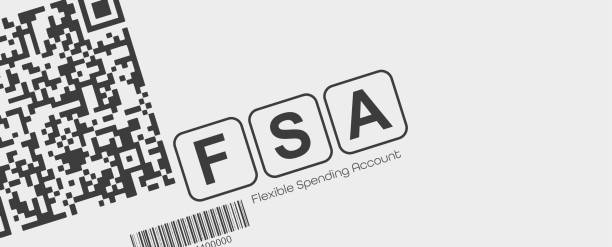You followed the rules. You saved your receipts. You submitted your FSA reimbursement claim confident that everything was in order. And then you got the denial notice.
FSA reimbursement denials are incredibly frustrating, especially when you were certain that what you purchased was a legitimate medical expense. The problem is that FSA eligibility rules are far more specific and sometimes counterintuitive than most people realize. Let’s talk about the expenses that surprise people by getting rejected, why they’re ineligible, and what you can actually do when you disagree with a denial.
The “Obviously Medical” Items That Aren’t Eligible
This is where most of the confusion happens—things that seem clearly health-related but don’t meet the IRS definition of a qualified medical expense.
Vitamins and supplements are probably the biggest source of denied claims. People assume that if their doctor recommended a vitamin D supplement or a multivitamin, it’s automatically FSA-eligible. It’s not. General health vitamins and supplements are specifically excluded from FSA reimbursement, even if a doctor told you to take them.
The exception is when a vitamin or supplement is prescribed to treat a specific diagnosed medical condition. If your doctor writes an actual prescription (not just a recommendation) for vitamin D because you have a documented deficiency, then it becomes eligible. But you need that prescription and documentation of the medical condition. Your doctor’s verbal suggestion doesn’t count.
Probiotics fall into the same category. They’re widely used for digestive health and often recommended by healthcare providers, but unless you have a prescription for a specific medical condition, they’re considered general wellness products and aren’t eligible.
CBD products get rejected constantly, regardless of what health claims are made about them. Even if you’re using CBD oil for anxiety, pain, or sleep issues, and even if your doctor thinks it’s helpful, CBD products are not FSA-eligible under current federal law. This is true even in states where CBD is fully legal and widely accepted.
The Gray Area of “Medical” vs. “General Wellness”
The IRS draws a line between products and services that treat or prevent disease versus things that promote general health. This distinction creates a lot of confusion because the line isn’t always obvious.
Gym memberships and fitness classes are almost never eligible, even though exercise is unquestionably good for your health. The only exception is when your doctor prescribes a specific exercise program as treatment for a diagnosed medical condition like obesity, hypertension, or diabetes. And even then, you need proper documentation—a prescription that specifies the medical necessity and the type of exercise program.
Massage therapy is another frequent rejection. A massage might legitimately help with your chronic back pain or stress, but that doesn’t automatically make it FSA-eligible. To qualify, massage therapy needs to be prescribed by a physician as treatment for a specific medical condition, and you need documentation for every visit. The massage therapist themselves recommending continued treatment isn’t sufficient—it has to come from your doctor.
Weight loss programs like Weight Watchers or Noom are generally ineligible, even though losing weight can have clear medical benefits. The exception is when your doctor diagnoses you with obesity and prescribes a specific weight loss program as treatment. Again, documentation is everything—you need proof that this is medical treatment for a diagnosed condition, not just a general wellness choice.
Air purifiers and humidifiers seem medical, especially if you have asthma or allergies. But without a Letter of Medical Necessity from your doctor specifically stating that you need this equipment to manage your condition, they’re considered general home goods and get rejected.
The Documentation Problem
Even when an expense is legitimately eligible, it can get denied for documentation issues. This is particularly common with online purchases.
Insufficient receipts are a huge problem. Your FSA administrator needs an itemized receipt that shows exactly what you purchased, the date, and the amount. A credit card statement showing a charge to Amazon or Walgreens isn’t sufficient. If you bought eligible items along with ineligible items in the same transaction, you need an itemized breakdown showing which products were medical expenses.
Missing prescriptions cause frequent denials. Many items are eligible only with a prescription—certain orthotic inserts, compression stockings, allergy medications that are available over-the-counter. If you submit a claim for these items without proof that you have a prescription, it gets denied. The fact that you do have a prescription doesn’t help if you didn’t submit it with your claim.
Expired or wrong-year expenses are another common issue. You can only use your FSA for expenses incurred during the plan year (and sometimes a grace period or carryover period, depending on your plan). If you submit a receipt from the wrong year, it gets rejected. Some people try to submit old receipts at the end of the year to use up remaining funds—this doesn’t work.
Dental and Vision Surprises
Dental and vision expenses are generally eligible, but there are specific items that surprise people by getting rejected.
Teeth whitening is purely cosmetic according to the IRS, so it’s not eligible, even when performed by a dentist. The same goes for veneers unless they’re needed to treat a medical condition or injury rather than just to improve appearance.
Non-prescription reading glasses bought off the rack at a drugstore used to be ineligible without a prescription, though some plans have become more flexible about this. Blue light blocking glasses are almost always rejected because they’re considered preventive rather than corrective, and there’s no standardized prescription for them.
Contact lens solution and cases are eligible—but only if you actually wear contact lenses prescribed by an eye doctor. Some plans require proof that you have a contact lens prescription on file before they’ll reimburse these items.
The “Was Your Doctor Involved?” Test
A useful rule of thumb: if your doctor wasn’t directly involved in determining that you need this product or service, your FSA claim might get denied.
This explains why ergonomic office equipment almost always gets rejected. An ergonomic keyboard or standing desk might help with your carpal tunnel or back pain, but unless your doctor specifically prescribed it as treatment, it’s not eligible. The fact that you decided it would help isn’t enough.
Athletic or orthopedic shoes follow the same logic. Even if you have foot problems and these shoes help, they’re not eligible unless prescribed by a podiatrist for a specific medical condition. Regular sneakers, even expensive supportive ones, don’t qualify.
Sleep aids like special pillows, mattresses, or sound machines are generally ineligible unless prescribed for a diagnosed sleep disorder. Your decision that you sleep better with a white noise machine doesn’t make it a medical expense.
How to Appeal a Denial
If your claim gets denied and you believe it was eligible, don’t just give up. FSA administrators do make mistakes, and there’s an appeals process.
Gather better documentation first. Often denials happen because of missing information rather than true ineligibility. If you didn’t submit an itemized receipt, get one. If you need a prescription or Letter of Medical Necessity, contact your doctor and request it. Many appeals succeed simply because the second submission includes the documentation that should have been there in the first place.
Understand your plan’s appeals process. Your FSA administrator should have sent information about how to appeal with your denial notice. Follow their process exactly. Usually this involves submitting a written appeal along with any additional documentation.
Be specific about why the expense should be covered. Don’t just resubmit the same claim. Explain why you believe the expense meets the eligibility requirements. Reference specific IRS regulations if applicable. Include any documentation that supports medical necessity.
Know when to accept defeat. If something is genuinely ineligible under IRS rules, no amount of appealing will change that. Vitamins without a prescription are ineligible. Gym memberships without proper documentation are ineligible. Cosmetic procedures are ineligible. If your denial is based on a clear IRS rule, the appeals process won’t help.
Preventing Denials in the First Place
The best strategy is avoiding denials entirely by being thoughtful about what you claim.
When in doubt, check first. Most FSA administrators have eligibility lists on their websites or you can call and ask about specific items before you make the purchase.
Get documentation upfront. If something requires a prescription or Letter of Medical Necessity, get that documentation before you buy the product and before you submit the claim. Don’t assume you can get it later if needed.
Save itemized receipts immediately. Don’t rely on being able to retrieve them later. When you make a purchase, save a detailed receipt right away.
Don’t try to get creative. People sometimes try to make ineligible expenses sound eligible by describing them differently or submitting them in ways that obscure what they actually are. This doesn’t work. FSA administrators review thousands of claims and they’ve seen every strategy. If you get caught trying to claim ineligible expenses, it creates problems that go beyond just that one claim.
The Reality of FSA Rules
Flexible spending account providers understand that the eligibility rules can feel arbitrary and frustrating, but they’re based on federal tax law and there’s limited flexibility in how they’re interpreted. The fundamental principle is that FSAs are for medical care—treating or preventing disease—not for general wellness or quality of life improvements, even when those things do impact your health.
Understanding what commonly gets denied helps you avoid the frustration of rejected claims. When you do face a denial, having the right documentation and understanding the appeals process gives you the best chance of getting it overturned when the expense genuinely was eligible. And when it wasn’t, knowing that upfront saves you the hassle of fighting a losing battle.



